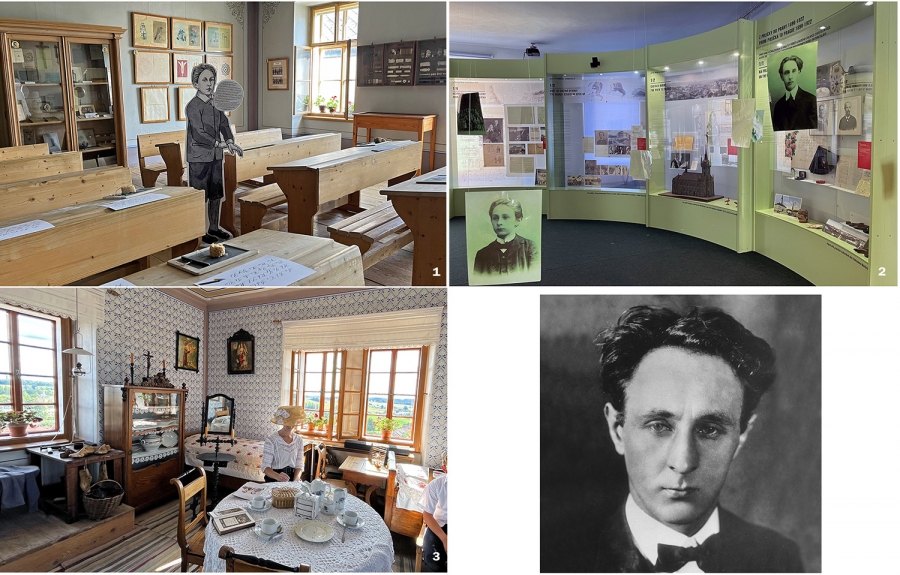Bohuslav Martinů. Devotion to Czech music
Four names - Bedřich Smetana, Antonín Dvořák, Leoš Janáček and Bohuslav Martinů - represent a bright constellation in the sky of Czech music.
In this first instalment, we will talk about the world-famous Czech composer Bohuslav Martinů, who was born in the small Czech town of Políčka in the Czech-Moravian Highlands.
I travelled there one summer morning from the Prague railway station. After a comfortable two-and-a-half-hour train journey, I was already walking through the streets of Políčka, where I saw signs saying «Bohuslav Martinů Centre».
Material prepared by: Boris Kogut.
I found out that the Bohuslav Martinů Centre (2) is housed in the historic building of the former town school where Bohuslav studied as a child (1).
In the centre of the town stands the Gothic clock tower of the Church of St. James. Inside, at a height of 36 metres, there is a small room where the future Czech composer Bohuslav Martinů was born on 8 December 1890 and spent the first 11 years of his life. It is now a museum. It was in this room (3) that the tower-keeper’s son soon showed exceptional musical talent.
His first lessons were given by a local music teacher and tailor. At the very beginning of his life’s journey, Bohuslav met beautiful Prague, a city that welcomed him with open arms, but soon turned its back on him.
At the Prague Conservatory, where Bohuslav began to study, his skills were considered as something ordinary, they demanded more and more from him. The years flew by. In addition to playing the violin, he began to write music, became interested in world literature, attended concerts and plays.
The consequences were harsh: «Expelled for incorrigible negligence. 4 June 1910».
This was the characterisation given by the Prague Conservatory to a composer who, from that day onwards, worked tirelessly on his compositions for 50 years with an energy that is certainly not found in everyone.
He worked almost every day and left behind a huge legacy: around 400 musical works.
Bohuslav Martinů played only second violin in the Czech Philharmonic Orchestra. His first significant work was the cantata Czech Rhapsody for Choir and Orchestra (1918), performed in the presence of the first President of Czechoslovakia, Tomáš Garrigue Masaryk.
In 1923, the path of life led the talented young man to Paris, to the French composer Albert Roussel.
At the beginning of his life in Paris, Martinů lived on a small stipend. But he was happy, for he saw the meaning of life in his work. His Parisian scores, which took up much of his time and brought him little income, taught him to think in a modern way.
In 1926, Bohuslav met his love, the Frenchwoman Charlotte Quennehen.
It was in Paris that Bohuslav created his first known works, unique in their colours.
I admired and enjoyed some of them during the holiday concert of the Moravian Piano Trio, which took place in the baroque town hall of Políčka on the evening of my arrival. One of the best operas of the 20th century, Juliette, or The Book of Dreams, was performed in Paris, as was Martinů’s most frequently performed work, the opera Comedy on the Bridge. Martinů first became famous for his Double Concerto for two string orchestras and Concerto for piano and timpani (1938).
These works were highly political - a direct response to the drama of Czechoslovakia in 1938. The Second World War brought Bohuslav and his wife across the ocean. In the USA, Bohuslav continued to develop the glorious musical tradition of the great representatives of Czech music. The last years of his life were spent in Switzerland. The composer spent most of his life abroad, but he never forgot his native Bohemia.
This enabled him to create works that are inseparable from Czech national music.
Continued in the next issue.









